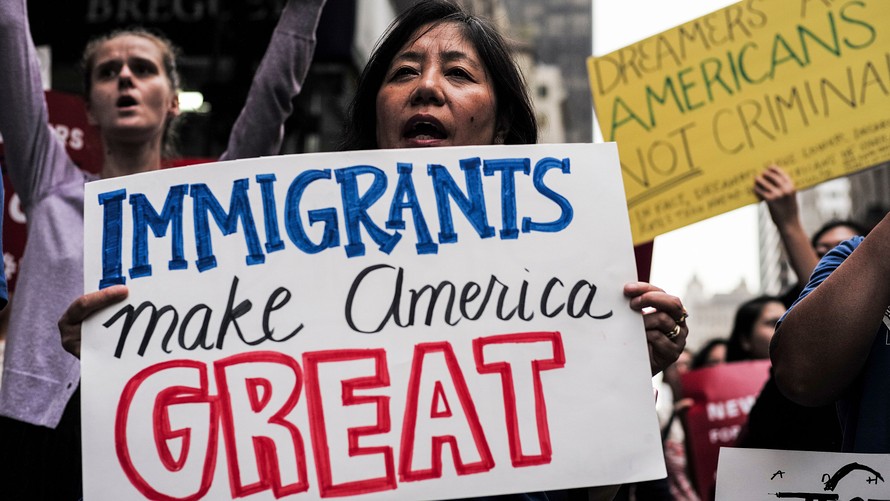NEW YORK — A state appeals court in Brooklyn ruled today definitively, and for the first time, that it is illegal under state law for local law enforcement agencies in New York to make immigration arrests at the request of federal immigration officials.
“This critical ruling makes clear that police and sheriffs in New York not only should not, but cannot do ICE’s bidding,” said Donna Lieberman, executive director of the New York Civil Liberties Union. “The role of local law enforcement is to protect and serve all New Yorkers, and that is incompatible with the unlawful detention of our neighbors and family members at the behest of the Trump deportation machine.”
In December 2017, the New York Civil Liberties Union filed an emergency petition on behalf of a man from India, Susai Francis, who the Suffolk County Sheriff’s Office refused to release after he pled guilty to a disorderly conduct violation and received a sentence of “time-served.” The Sheriff’s Office held Mr. Francis in jail for nearly two more days during which the state appeals court heard NYCLU’s urgent petition for his release. The court did not rule in time to prevent ICE officials from taking custody of Mr. Francis and transporting him to a detention facility in New Jersey. Today, however, the appellate court ruled that the detention of Mr. Francis constituted an arrest that the Sheriff’s Office had no authority to make.
“This ruling makes clear that local law enforcement officers across New York do not have the authority to arrest immigrants at the request of ICE,” said former NYCLU attorney Jordan Wells, now of the ACLU of Southern California. “New York law grants officers specific, well-defined arrest powers, and the power to make immigration arrests is not one of them.”
Following the initial hearing in December, the appeals court invited and received submissions from both the United States and New York State Attorney General offices. The New York Attorney General’s office filed an amicus brief agreeing with NYCLU that state law does not authorize New York law enforcement officers to make civil immigration arrests.
Federal law allows local officers to make civil immigration arrests only where, unlike in New York, state law authorizes such arrests. In July of 2017, Massachusetts’ highest court held in a similar case (Lunn v. Commonwealth) that Massachusetts law does not authorize local officers to make such arrests.
Many places in New York and around the country have adopted so-called “sanctuary” policies, which include prohibiting local law enforcement from complying with ICE requests, known as detainers, to hold immigrants who should be released. New York City, Westchester County, and some sheriff’s offices have versions of anti-detainer policies in place, while law enforcement in Suffolk County, Rensselaer County and other localities actively share information and coordinate with ICE to detain immigrants.
In response to calls from the NYCLU and other advocates, the Suffolk County Sheriff’s Office had stopped enforcing ICE detainer requests in 2014. But after President Trump’s election, the Sheriff’s Office reversed course, leading to a wave of detentions. In 2017, the Suffolk County Sheriff’s Office received more requests to detain immigrants for ICE than any other sheriff’s office in New York State. Today’s decision established that the sheriff’s policy of honoring those requests is unlawful.
“Immigrant families in Suffolk County are living in constant fear of being separated from their loved ones,” said Irma Solis, director of the Suffolk County chapter of the NYCLU. “Local law enforcement should be protecting all of our communities, not tearing apart families.”
This ruling, which will have state-wide effect because this is the first appeals court to decide the issue, prohibits local law enforcement from holding people in their custody or in other law enforcement encounters like traffic stops on behalf of ICE.
In addition to Wells, NYCLU staff on the case include associate legal director Christopher Dunn, staff attorney Paige Austin, Suffolk County chapter director Irma Solis, researcher Maria Rafael and paralegal John Paraskevopoulos. ACLU Immigrant Rights Project is co-counsel on the case, including director Omar Jadwat and staff attorneys Cody Wofsy and Spencer Amdur.
